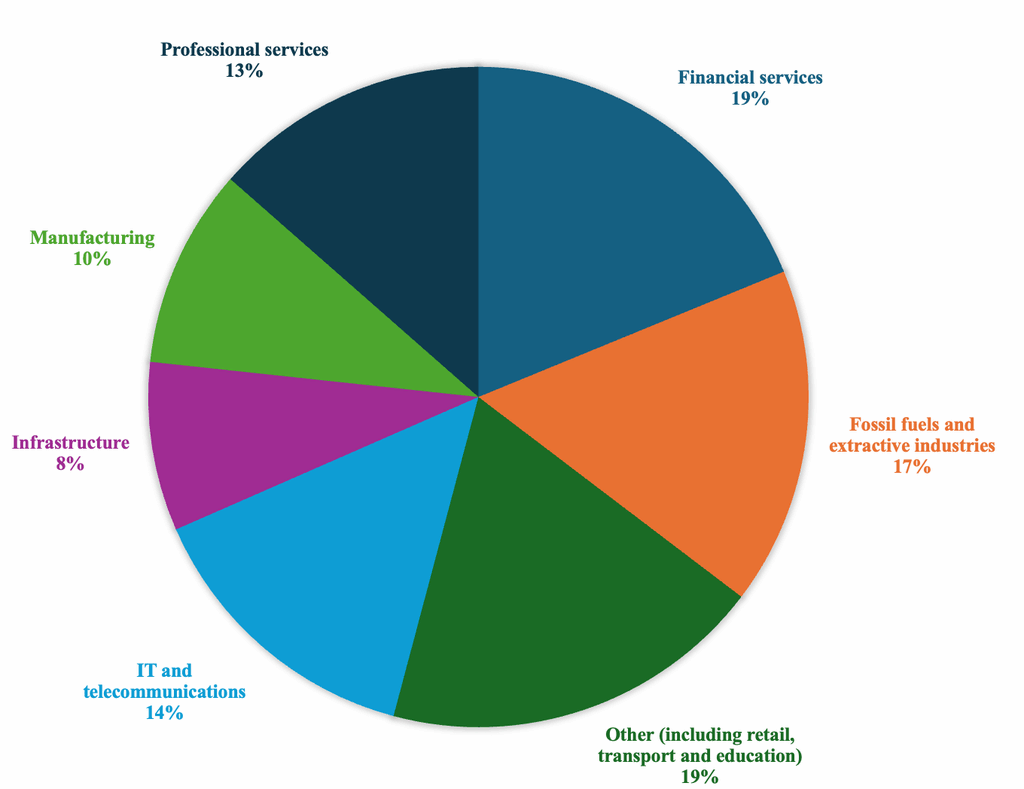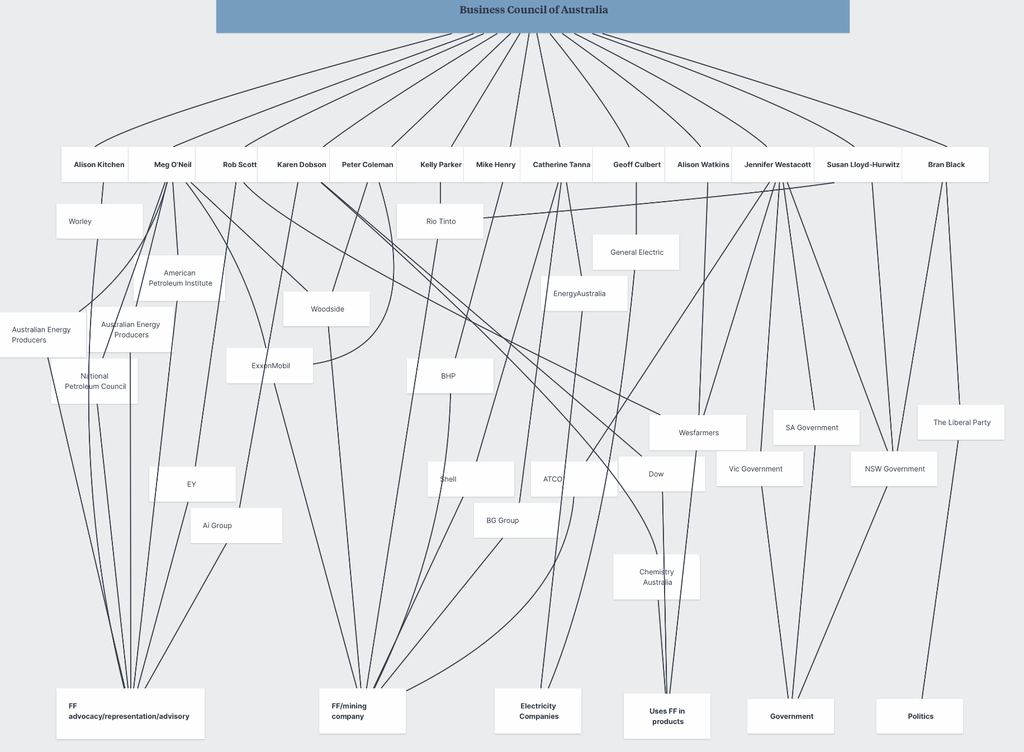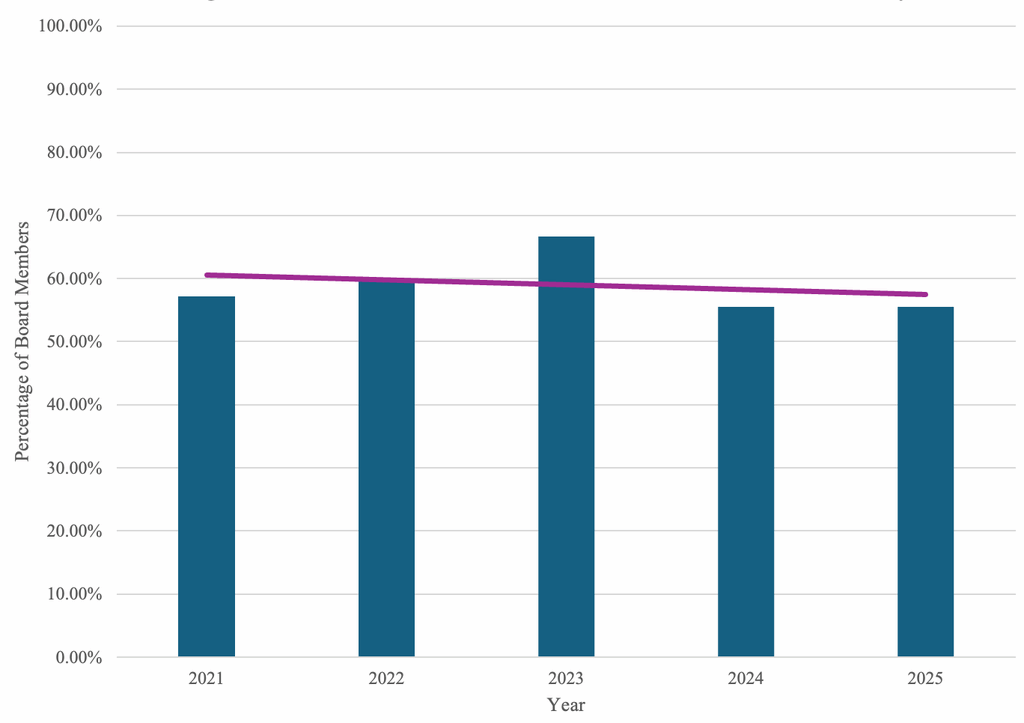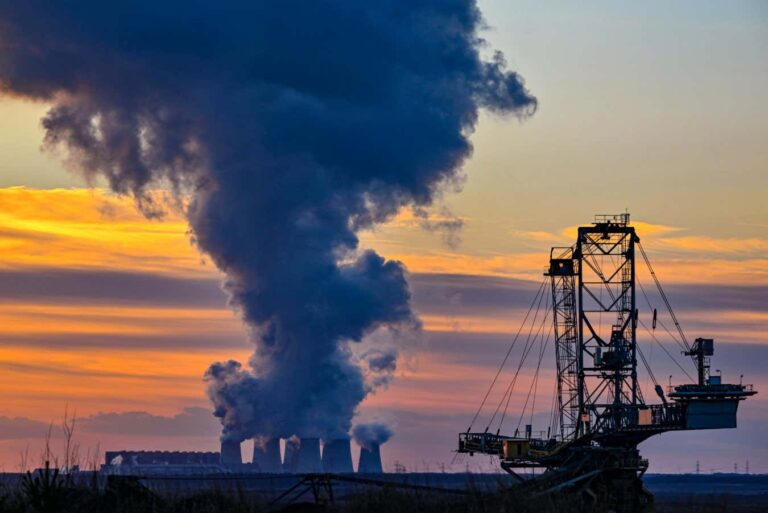The Business Council of Australia (BCA) is an industry body made up of the chief executives of approximately 110 of the country’s largest corporations. These include financial services and banking, manufacturing, transport and telecommunications. But behind the BCA’s claim to represent all sectors of the economy lies a troubling truth: a significant portion of its board and membership are deeply tied to the fossil fuel industry.
Who does the BCA really represent?
The BCA says that it “represents Australia’s largest employers, advocating for good policy on behalf of the business community and the Australians they employ,” positioning itself as a neutral organisation representing a cross-section of industries. However, 22 fossil fuel and extractive industry companies have general membership in the BCA, including BP, Woodside, and Shell. This figure represents 16.5% of the total companies. 14 of these (10.5%) are directly involved with, supporting or associated with the coal industry.

BCA 2025 membership by sector.
According to the ABS Labour Account, approximately 34,300 individuals were employed in Australia’s coal mining sector during 2021–22. That year, the coal industry comprised 36,000 jobs, representing just 0.2% of the total 14.9 million jobs across all industries. This disparity is notable, as its membership base is 52.5 times larger than the total number of jobs in the coal sector, which accounts for only 0.2% of national employment.
Boardroom ties: fossil fuel influence at the heart of the BCA
From 2021 to 2025, the BCA’s board has comprised 18 members, several of whom have served for multiple consecutive years. Publicly available information on LinkedIn and the BCA website reveals that over 50% of board members of BCA board members in the past 5 years possess links to the fossil fuel industry.

Map of BCA board members from 2021-2025 and their ties to the fossil fuel industry
This provides further evidence of the non-neutrality of the BCA, particularly when compared to the mere 17% that fossil fuel and extractive industries make up in general BCA membership. These connections stem from past or current employment with companies that are affiliated with the fossil fuel sector. Some of these are part of this industry, such as Woodside, ExxonMobil and Rio Tinto, while others are deeply linked, including DOW, AI Group, Wesfarmers and EY. Some of these people have multiple connections. For instance, current board member Meg O’Neil is the Chief Executive Officer of Woodside, and has previously worked for ExxonMobil, American Petroleum Institute and National Petroleum Council. She is also the current chair of Australian Energy Producers.

Percentage of BCA Board Members Involved in the fossil fuel industry. Note: Due to the low turnover rate among Board members, some individuals appear multiple times in the table, resulting in repeated entries and associated data.
The consistent trend of board members with fossil fuel connections taking up the majority of board positions increases the likelihood of board decisions being influenced in favour of that sector.
BCA’s climate commitments undermined by fossil fuel advocacy
Despite representing a broad cross section of Australian businesses, many of whom have corporate climate commitments such as reaching Net Zero by 2050 in line with the goals of the Paris Agreement, the BCA has been advocating on behalf of its membership for further fossil fuel expansion. A recent example is their advocacy in favour of approving Woodside’s North West Shelf project, a move approved by Australian Energy Producers, the peak body for the oil and gas industry. The BCA has also provided support for the Government’s Future Gas Strategy, claiming it will provide consistent energy supply, contribute to economic growth and reduce costs for consumers, all claims that have been debunked by Greenpeace.
The Business Council of Australia claims to represent the full spectrum of Australian industry, but its leadership structure, membership, and advocacy efforts reveal a deep alignment with fossil fuel interests. If Australia is to move toward a genuinely fair and sustainable future, it needs business voices that prioritise people and planet over polluting profits.

Tell brands to break up with Big Gas
Telstra and Bupa are betraying their climate commitments.
EMAIL NOW








